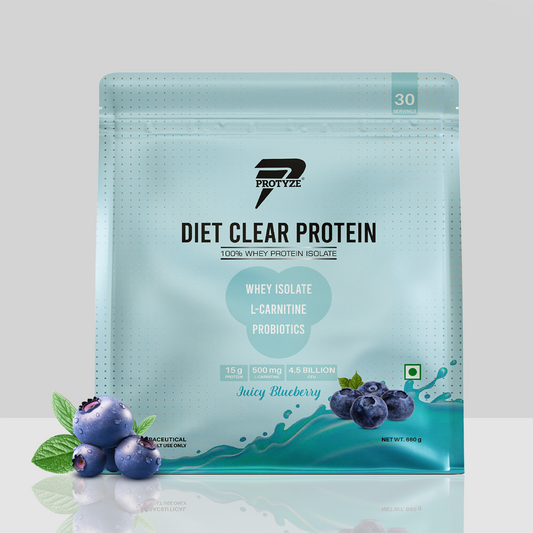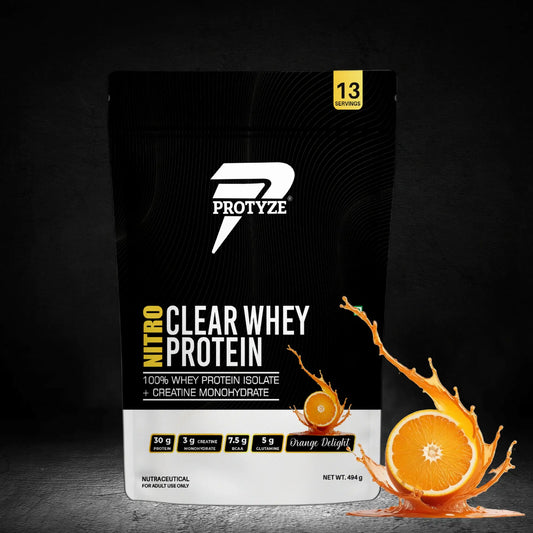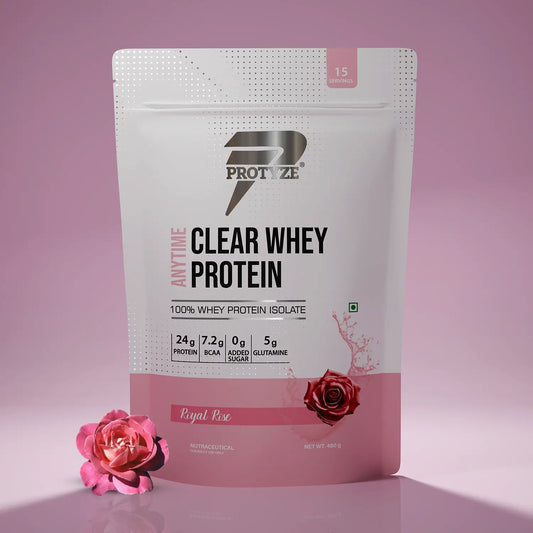The supplement industry in India has grown rapidly, with more people turning to protein powders, multivitamins, and other health products to support their fitness and wellness goals. While many supplements can help you meet your nutritional needs, the market is also flooded with fake or low-quality products that can be ineffective or even harmful. Spotting these substandard supplements is crucial to protect your health and ensure you’re getting value for your money.
This blog explores how to identify fake or low-quality supplements in India, the risks of using them, key factors to check, and how to choose trustworthy products. We’ll also highlight Protyze Anytime Clear Whey Protein, a high-quality, transparent supplement with flavors like Watermelon, to help you make safe choices. Whether you’re a gym-goer, a busy professional, or someone looking to improve your health, this article will empower you to navigate the Indian supplement market with confidence in 2025.
Why Spotting Fake or Low-Quality Supplements Matters in India
India’s supplement market is vast, driven by increasing fitness awareness, urbanization, and the rise of online shopping. However, this growth has also attracted unscrupulous sellers who flood the market with counterfeit or substandard products. Here’s why spotting fake or low-quality supplements is so important:
- Health Risks: Fake supplements may contain harmful ingredients, contaminants, or incorrect dosages, leading to side effects like stomach issues, allergic reactions, or long-term health problems.
- Ineffectiveness: Low-quality supplements often lack the active ingredients they claim to have, meaning you won’t get the benefits you’re paying for, such as muscle growth or improved energy.
- Wasted Money: With supplements often being expensive, buying fake or ineffective products means you’re throwing away your hard-earned money.
- Regulatory Challenges: While India has regulations for supplements under the Food Safety and Standards Authority of India (FSSAI), enforcement can be inconsistent, making it easier for fake products to slip through the cracks.
In cities like Mumbai, Delhi, and Bengaluru, where fitness trends are booming, consumers face additional challenges due to the sheer number of products available—both online and in local stores. Learning how to spot fake or low-quality supplements can help you avoid these risks and invest in products that truly support your health.
Risks of Using Fake or Low-Quality Supplements
Using counterfeit or substandard supplements can have serious consequences for your health and fitness goals. Here’s what can happen:
- Contaminated Ingredients: Fake supplements may contain harmful substances like heavy metals (e.g., lead, mercury), unlisted steroids, or artificial fillers that can damage your liver, kidneys, or other organs.
- Incorrect Dosages: Low-quality products might have too little of the active ingredient (e.g., protein in a powder) or too much, leading to under-dosing (no benefits) or overdosing (toxic effects).
- Allergic Reactions: Unlisted or poor-quality ingredients can trigger allergies, causing rashes, swelling, or breathing issues, especially if you have sensitivities to common fillers like artificial colors or flavors.
- Digestive Issues: Substandard supplements, especially protein powders, may use low-grade ingredients that cause bloating, gas, or diarrhea, particularly if they’re not tested for purity.
- No Results: If a product doesn’t contain the claimed nutrients, you won’t see the expected results—like muscle gain from a protein powder or energy from a multivitamin—wasting your time and effort.
- Legal and Financial Loss: In India, counterfeit products are often sold through unofficial channels, and if something goes wrong, you may have no recourse to return the product or get a refund.
These risks highlight the importance of being vigilant when purchasing supplements in India, especially in a market where fake products can look very convincing.
How to Spot Fake or Low-Quality Supplements in India
To protect yourself, you need to know what to look for when buying supplements. Here are key factors to check:
1. Check for FSSAI Certification
The Food Safety and Standards Authority of India (FSSAI) regulates food and supplements in India, and all legitimate products must have an FSSAI license number and logo on the packaging.
What to Look For:
- A 14-digit FSSAI license number on the label, usually starting with “1” for food products.
- The FSSAI logo, which is a triangle with a green checkmark and the words “FSSAI” inside.
Red Flags:
- No FSSAI number or logo on the packaging.
- A suspicious or tampered label that looks photocopied or faded.
Why It Matters:
The FSSAI certification ensures the product meets safety and quality standards, such as proper labeling and safe ingredients. Without it, the product may be counterfeit or unsafe.
2. Examine the Label and Ingredients
A high-quality supplement will have a clear, detailed label with all necessary information. In India, some fake products mimic popular brands but cut corners on quality.
What to Look For:
- A complete list of ingredients, including the exact amounts (e.g., “24g protein per serving”).
- No vague terms like “proprietary blend” without specifying quantities.
- Nutritional information, including calories, protein, carbs, and fats per serving.
- Allergen warnings (e.g., “contains soy” or “lactose-free”).
Red Flags:
- Missing or incomplete ingredient lists.
- Unrealistic claims like “100g protein per serving” in a small scoop, which is impossible.
- Spelling errors or poorly printed labels, which are common in counterfeit products.
Why It Matters:
A transparent label ensures you know exactly what you’re consuming, helping you avoid harmful additives or ineffective doses.
3. Verify Third-Party Testing and Certifications
High-quality supplements often undergo third-party testing to verify their purity, potency, and safety. In India, this isn’t mandatory, but reputable brands often include such certifications.
What to Look For:
- Certifications like GMP (Good Manufacturing Practices) or ISO, which indicate the product was made in a safe, controlled environment.
- Third-party testing seals from labs like NSF International, USP, or Informed-Sport, which confirm the product contains what it claims.
- Batch testing details, often available on the brand’s website.
Red Flags:
- No mention of testing or certifications.
- Claims of testing without proof (e.g., no batch number or website link to verify).
Why It Matters:
Third-party testing ensures the supplement is free from contaminants and matches its label claims, giving you confidence in its quality.
4. Buy from Trusted Sources
In India, supplements are sold everywhere—from local gyms and small shops to online marketplaces like Amazon and Flipkart. However, not all sellers are reliable.
What to Look For:
- Purchase directly from the brand’s official website or authorized retailers.
- Check for a hologram, tamper-proof seal, or QR code on the packaging to verify authenticity.
- Look for reviews and ratings from verified buyers if buying online.
Red Flags:
- Products sold at a steep discount (e.g., 50% off) on unofficial websites or by unknown sellers, which often indicates counterfeits.
- Unsealed or damaged packaging, which could mean the product has been tampered with.
- Sellers at local gyms pushing unknown brands with no online presence.
Why It Matters:
Buying from trusted sources reduces the risk of getting fake products, especially in India where counterfeit goods are common on e-commerce platforms.
5. Assess the Price and Packaging
While price alone isn’t a definitive indicator, it can provide clues about a supplement’s quality. In India, counterfeit products often mimic the packaging of popular brands but cut costs in noticeable ways.
What to Look For:
- A price that aligns with the market average for similar products (e.g., a good protein powder might cost ₹2000-3000 for 900g).
- Professional packaging with consistent branding, clear fonts, and a secure seal.
- A scoop inside the container that matches the serving size listed on the label.
Red Flags:
- Prices that are too good to be true (e.g., a premium protein powder for ₹500).
- Poor-quality packaging, such as faded labels, cheap plastic containers, or missing seals.
- No scoop, or a scoop that doesn’t match the serving size (e.g., a tiny scoop for a “30g serving”).
Why It Matters:
Fake products often cut corners on packaging to save costs, and unrealistically low prices are a common tactic to lure unsuspecting buyers.
6. Check the Product’s Texture, Taste, and Mixability
Once you’ve purchased a supplement, its physical properties can reveal its quality, especially for protein powders commonly used in India.
What to Look For:
- A smooth, fine powder that mixes easily in water without clumps (for protein powders).
- A taste that matches the flavor description (e.g., a watermelon flavor should taste refreshing, not artificial).
- No strange aftertaste, grittiness, or chemical smell.
Red Flags:
- Clumpy or grainy texture, which can indicate poor manufacturing or added fillers.
- A taste that’s overly sweet, artificial, or off-putting, suggesting low-quality flavorings.
- Difficulty mixing, leaving residue or foam, which can indicate poor-quality protein sources.
Why It Matters:
High-quality supplements are formulated for a pleasant user experience, while fake or low-quality products often use cheap ingredients that affect texture and taste.
7. Look for Transparency from the Brand
Reputable supplement brands are transparent about their sourcing, manufacturing, and testing processes. In India, where fake products often copy well-known brands, transparency is a key indicator of quality.
What to Look For:
- A brand website with detailed product information, including sourcing and testing details.
- Contact information for customer support, such as a phone number or email, in case you have questions.
- Clear claims backed by science (e.g., “24g protein per serving” with a nutritional breakdown).
Red Flags:
- No online presence or a poorly designed website with little information.
- Exaggerated claims like “gain 10kg muscle in 1 month” without evidence.
- No way to contact the brand for verification or complaints.
Why It Matters:
Transparent brands, like those offering products such as Protyze Anytime Clear Whey Protein, provide clear information about their ingredients and processes, helping you trust what you’re consuming.
How to Choose High-Quality Supplements in India
Now that you know how to spot fake or low-quality supplements, here’s how to choose reliable, high-quality options:
- Stick to Reputable Brands: Choose brands with a strong reputation, like those that provide detailed information about their products. For example, Protyze Anytime Clear Whey Protein offers 24g of protein per serving, is 99% lactose-free, and comes in refreshing flavors like Pineapple, making it a trustworthy choice for your fitness needs.
- Read Reviews: Look for feedback from other users on trusted platforms, focusing on verified reviews that mention effectiveness, taste, and mixability.
- Check for Authenticity: Scan QR codes or holograms on the packaging to verify the product’s authenticity, a feature many reputable brands in India now include.
- Consult a Professional: If you’re unsure about a supplement, ask a dietitian or doctor, especially if you have specific health goals like muscle gain or weight management.
- Start Small: Buy a smaller pack first to test the product’s quality, taste, and effects before committing to a larger purchase.
By following these steps, you can confidently choose supplements that are safe, effective, and worth your investment.
Conclusion
Spotting fake or low-quality supplements in India is essential to protect your health, save money, and achieve your fitness goals. By checking for FSSAI certification, examining labels, verifying third-party testing, buying from trusted sources, assessing price and packaging, evaluating the product’s texture, and ensuring brand transparency, you can make informed choices in a market filled with counterfeits.
Protyze Anytime Clear Whey Protein, with its 24g of protein, 99% lactose-free formula, and refreshing flavors like Watermelon and Pineapple, is an example of a high-quality, transparent supplement you can trust. Combine these strategies with a balanced lifestyle—nutritious meals, regular exercise, hydration, and rest—to ensure your supplements support your journey to better health in 2025. Stay vigilant, choose wisely, and enjoy the benefits of safe, effective nutrition!





